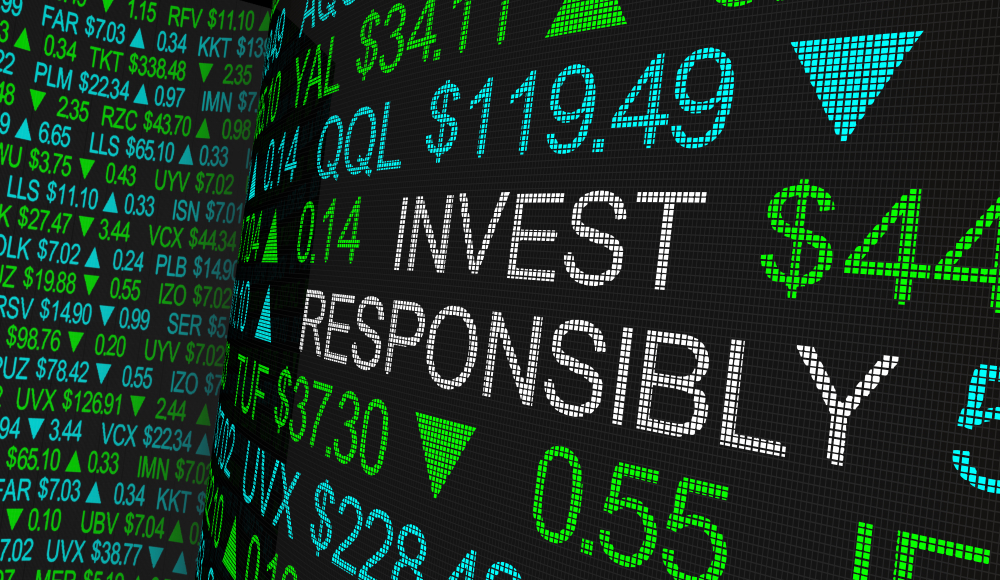Experienced Investor
Is your sustainable investment fund clean and green?

Many investment funds that describe themselves as ‘sustainable’ are falling short of investors’ expectations, according to Which?
The consumer champion found that many funds are neither clean nor green, with some backing firms linked to fossil fuels and deforestation.
Sustainable funds are often referred to as Environmental, Social and Governance (ESG) funds; they have become one of the fastest growing sub-sectors in the investment industry.
According to figures from the Investment Association, of the £43.2bn that was invested into retail funds by UK investors in 2021, £16bn was put into ‘responsible funds’.
There are many labels for investments that consider more than just profits, but Which? research suggests there is often a mismatch between what investors understand to be “ethical” and the fund management industry’s definitions.
Which? surveyed 289 of its members who invest in ESG funds and found that most were fairly or very confident their fund was not investing in fossil fuels (67%), weapons (79%), tobacco (81%) or companies that contribute to deforestation (66%).
However, when Which? looked at the holdings of leading ESG funds, it found that some included massive oil companies and firms linked to deforestation.
BlackRock’s iShares ESG Aware MSCI USA, one of the biggest ESG funds in the world both in terms of assets under management and investor inflows, includes fossil fuel giants Chevron and Exxon Mobil among its holdings.
Investment platform Vanguard’s ESG Developed World All Cap Equity Index Fund (UK) was among the most-bought ESG funds on the platform Interactive Investor in 2021. However, it invests in McDonald’s, Mondelez and Nestlé with all three companies having supply chains linked to the destruction of the Amazon rainforest.
BlackRock and Vanguard defend their investments in the likes of Chevron and McDonald’s on the grounds that these companies have committed to net-zero emissions by 2050. So, by investing in these companies, the fund managers argue, people can participate in the transition to a green economy.
However, only 2% of those surveyed said their favoured ESG strategy would be investing in controversial companies to encourage them to become more sustainable. The majority (64%) said they wanted to invest in companies that aim to improve society or the environment.
Since Which? carried out the research, Russia’s invasion of Ukraine has increased the pressure on individual investors to consider where their money is going.
The wide range of ESG fund strategies can leave would-be and current investors perplexed. Of the 289 investors Which? surveyed, one fifth (21%) were unable to state their ESG fund or trust’s investment approach.
Which? research shows that expecting every investor to carry out a high level of due diligence is impractical. Among the ESG investors the consumer champion surveyed, under a fifth (18%) admitted that they did not try to access information about the fund’s ESG strategy before investing.
There is further evidence which suggests that investors don’t carry out in depth research of their funds. For example, just 8% of investors in Which?’s survey read the annual reports, which are often the only place to find a fund’s full holdings listed.
The Financial Conduct Authority (FCA) has taken steps to standardise ESG definitions. However, without standardised labels and minimum standards, the onus still falls on investors to spot ‘greenwashing’.
When Which? presented investors with new labels for sustainable investment funds, proposed by the FCA, the majority (80%) said they understood most of the labels. Just under one in 10 (8%) said they didn’t understand any of the proposed labels.
The majority (69%) of investors said they would be in favour of minimum standards for what makes an investment an ESG.
Jenny Ross, Which? Money editor, said: “Investors want to know that when they put their money into ESG investments, they’re investing in a more sustainable future, but this research suggests something quite different.
“We found that many such funds are falling short of investors’ expectations, which could leave some customers shocked by the companies and industries they are unknowingly backing.
“To help investors make more informed decisions, there must be transparent information for ESG funds, to prevent conscientious consumers from putting their money into funds that don’t do what they say on the tin.”